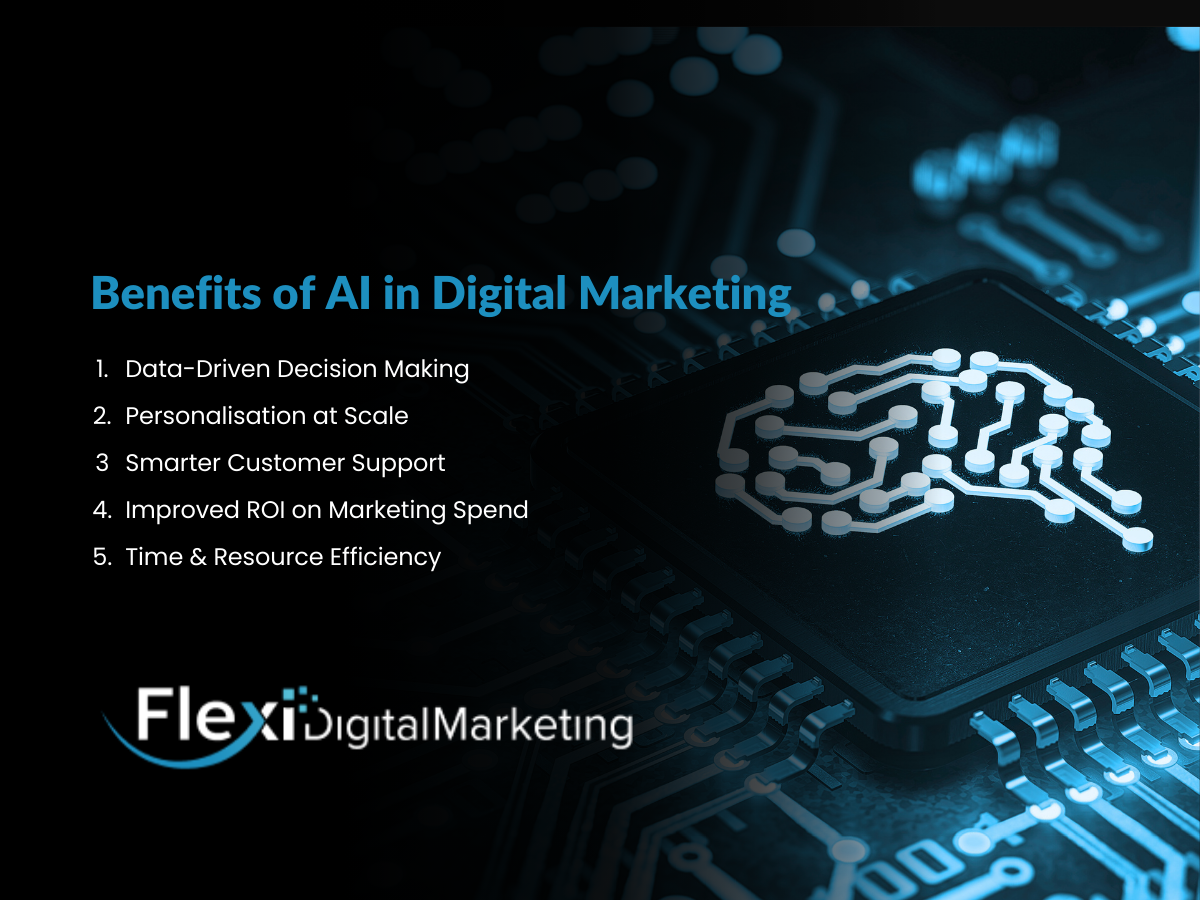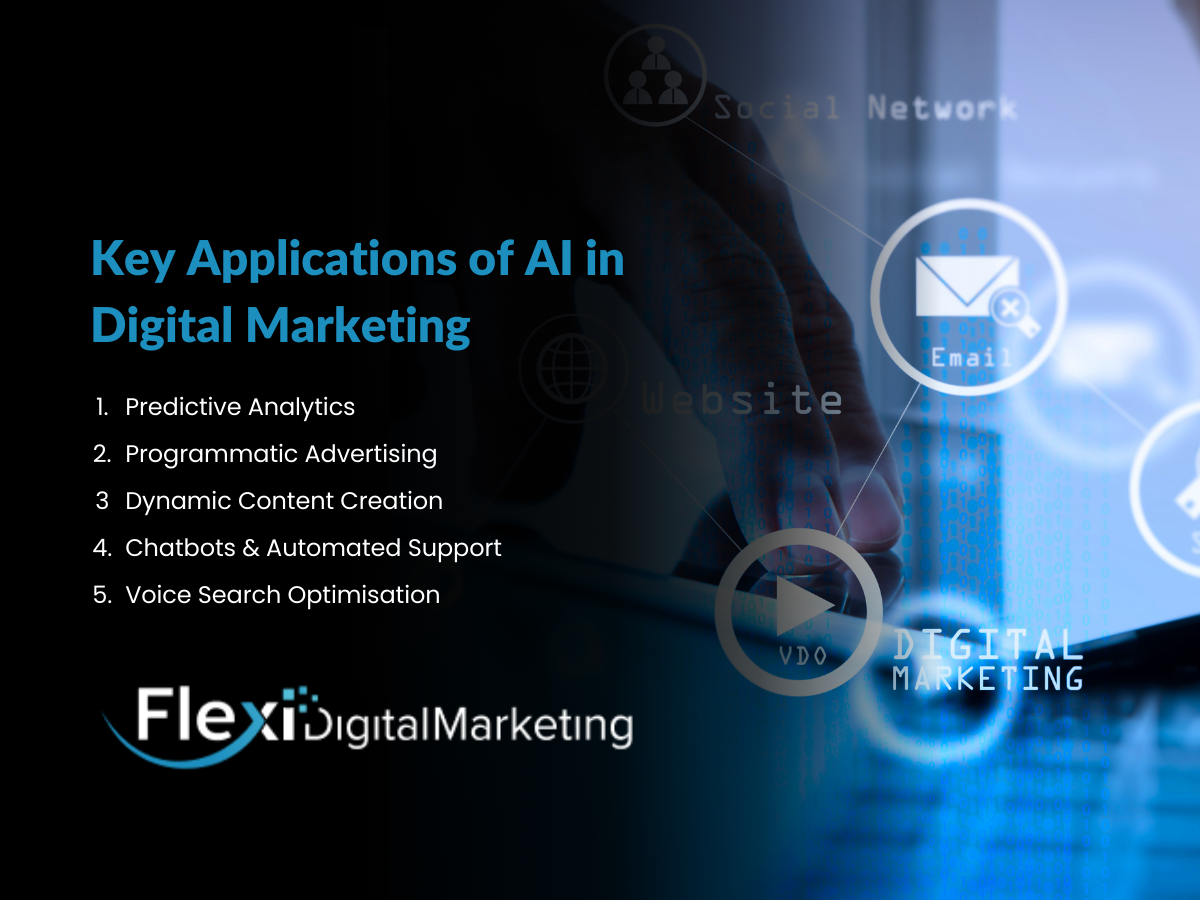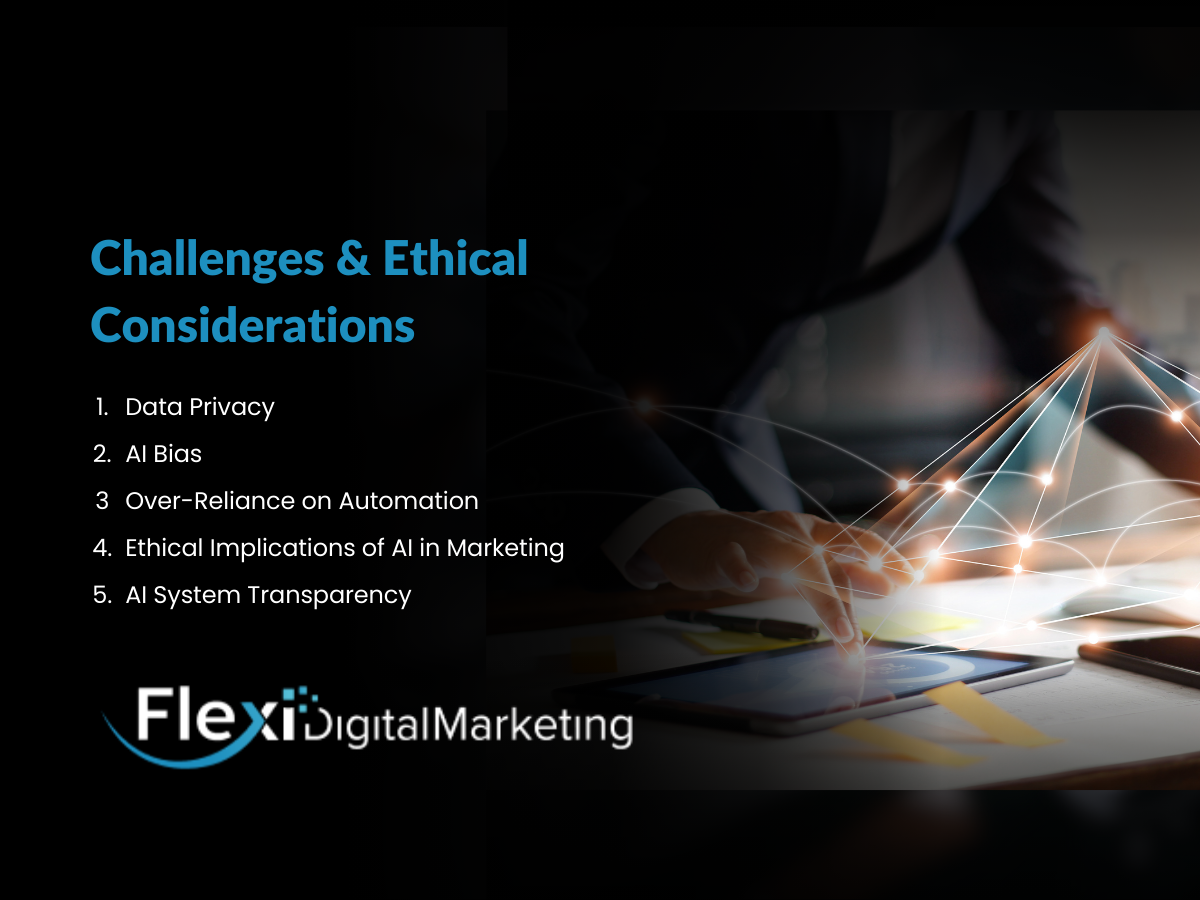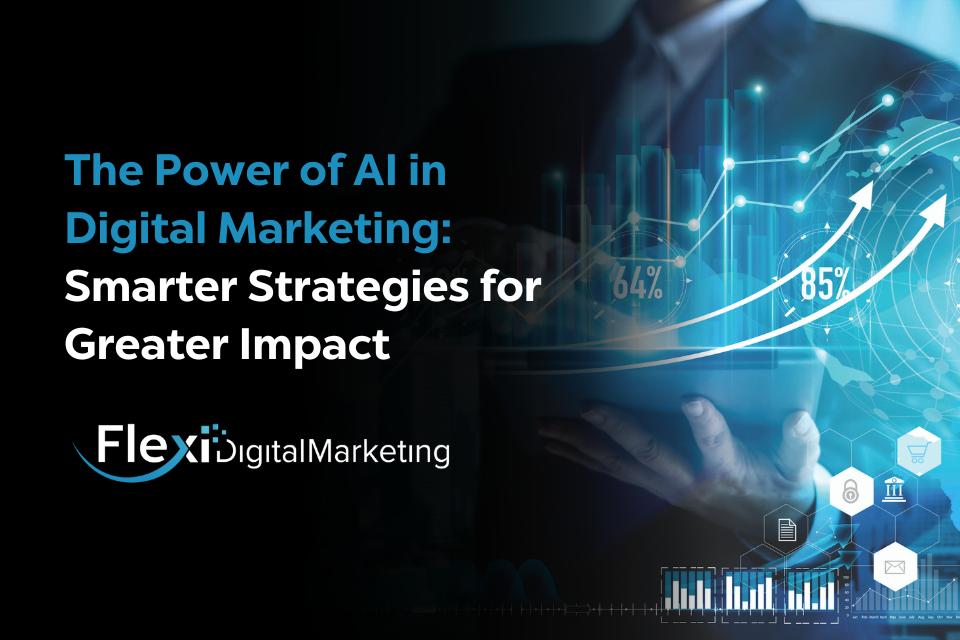AI in digital marketing is here, and it’s making a huge impact. From personalising your marketing to automating the boring stuff, AI is turning the world of digital marketing on its head. But what does this mean for your business? In this blog, we’ll break down how AI is changing the game, how you can use it to boost your marketing efforts, and why it’s something you simply can’t afford to ignore.
What Is AI in Digital Marketing?
Simply put, it’s the use of artificial intelligence to help businesses deliver smarter, more efficient marketing. AI tools can analyse heaps of data in seconds, giving you insights into customer behaviour, preferences, and trends that would take humans ages to figure out. It’s like having a super-powered assistant who can optimise your content, target the right audience, and even run campaigns without needing a break.
Benefits of AI in Digital Marketing
AI’s not just fancy tech—it’s helping businesses stay ahead and get better results. With the right tools, you can work smarter, not harder, and get real results without the headaches.

1. Data-Driven Decision Making
AI helps businesses find valuable insights from loads of data. With the power of data analytics, it tracks customer behaviour and preferences in real-time, providing marketers with the information they need to make smarter choices, remove the guesswork, and deliver better results quickly.
2. Personalisation at Scale
Personalisation is crucial for successful digital marketing, and AI takes it further. It delivers tailored content and ads to individuals, driving more engagement. Targeting the right audience with the right offers at the right time, AI helps boost conversions and scale personalisation across a wider audience.
3. Smarter Customer Support
AI chatbots and virtual assistants are changing customer support. Available around the clock, they provide instant replies, boost satisfaction, and allow human agents to focus on tougher issues. Automating routine tasks helps businesses improve efficiency while keeping service quality high.
4. Improved ROI on Marketing Spend
AI helps businesses get the most out of their marketing spend. It improves ad targeting and adjusts campaigns in real time, ensuring budgets are used wisely. This cuts waste and boosts returns by reaching the right audience and increasing conversion rates through better targeting.
5. Time & Resource Efficiency
AI helps save time and stretch resources further. With marketing automation handling the repetitive stuff like content, data, and campaigns, teams can spend less time on the grind and more on big-picture ideas. It’s a smart way to get more done without wearing everyone out.
Key Applications of AI in Digital Marketing
AI isn’t just for tech giants—it’s making life easier for marketers of all sizes. From creating custom experiences to automating tasks, AI is opening new doors for smarter and more effective strategies.

1. Predictive Analytics
AI uses predictive analytics to forecast customer behaviours and future trends from past data. This helps marketers choose the best strategies and fine-tune campaigns. With AI spotting market shifts early, brands can stay ahead of the competition and adjust their tactics on the fly.
2. Programmatic Advertising
AI is changing advertising, automating ad buying and placement. With machine learning, AI fine-tunes ad targeting, making sure the right message hits the right person at the right time. This cuts down on mistakes and boosts campaign performance, making programmatic advertising more efficient and affordable.
3. Dynamic Content Creation
AI can create content that’s both top-notch and spot on for the audience. From blog posts to social media captions, it helps marketers craft SEO-friendly, engaging content at scale. Plus, it adjusts content in real-time based on user feedback or behaviour, letting businesses stay consistent while staying flexible in their marketing.
4. Chatbots & Automated Support
AI chatbots are a key part of today’s customer service. They offer instant, 24/7 support, helping customers with real-time info. Whether answering questions or guiding purchases, chatbots improve satisfaction and make support more efficient.
5. Voice Search Optimisation
As voice assistants like Alexa, Siri, and Google Assistant become more common, it’s increasingly important to optimise content for voice search. AI helps businesses tweak their content to suit voice queries, keeping their websites and content visible in search results. This trend is only set to grow, and those who use AI will stay ahead.
Challenges & Ethical Considerations
While AI offers heaps of benefits, it’s not all smooth sailing. There are some tricky challenges and ethical questions businesses need to tackle to use it the right way.

1. Data Privacy
With the rise of AI comes the responsibility to handle user data ethically. As data privacy regulations like GDPR become more stringent, businesses need to be transparent about how they collect, store, and use data. It’s important to balance personalisation with user privacy preferences, ensuring trust while delivering relevant marketing experiences.
2. AI Bias
AI systems are only as good as the data they’re trained on. If the data is biased, the AI model can reflect those biases, leading to unethical or unfair outcomes. It’s crucial for businesses to ensure that their AI models are audited regularly to identify and correct any bias. This ensures that AI-driven decisions are fair, accurate, and equitable for all customers.
3. Over-Reliance on Automation
Automation is one of AI's biggest perks, but it's crucial not to take the human side out of the equation. Areas like creative strategy and decision-making still need that human touch. Businesses should strike a balance, using AI to handle the repetitive stuff while keeping the creativity and strategy in human hands.
4. Ethical Implications of AI in Marketing
As AI becomes more common, businesses need to think about the ethical side of using it in marketing. From targeted ads to content creation, AI can influence consumer behaviour. It’s important for businesses to use AI responsibly, keeping their marketing fair, transparent, and free from manipulation.
5. AI System Transparency
For AI to earn trust, it has to be transparent. Customers should understand how AI makes decisions, especially when it impacts things like personalised recommendations or ads. Businesses should be honest about how they use AI in marketing and ensure their systems are clear and accountable.
Final Thoughts
AI in digital marketing isn’t just a trend—it’s already transforming how brands connect with audiences. From predictive analytics and dynamic content to smarter customer support and improved ROI, AI is reshaping marketing strategies. But with great power comes great responsibility. Businesses must tackle challenges like data privacy, ethical use, and keeping the human touch intact.
When used thoughtfully and strategically, AI unlocks smarter strategies for greater impact, boosts efficiency, enhances personalisation, and keeps you ahead of the curve. The future of digital marketing belongs to those who harness AI while staying true to trust, creativity, and ethics at the heart of their strategy.
Ready to transform your marketing strategy? Contact us and let’s get started today!


